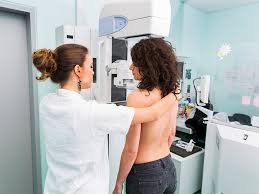If you’re a morning person, here’s a perhaps unexpected benefit of your early-bird nature: Today a study published by the BMJ analyzing sleep patterns found people who enjoy getting up early are at a lower risk of developing breast cancer than people who like staying up late. With an estimated one in seven women developing breast cancer in their lifetimes, these findings are worth paying attention to for reducing the odds of contracting this extremely prevalent disease.
How being a morning person lowers your risk of breast cancer.
Researchers looked at data on 180,216 women’s sleep duration, insomnia symptoms, self-reported preference between mornings or evenings, and breast cancer status over the course of nine years of follow-up. The specific analysis tool they used involved looking at the genetic variants associated with each of these traits and then seeing how the possession of those genetic variants was associated with one’s likelihood of developing breast cancer. This method allows the researchers to draw causal conclusions (as opposed to mere associations) between variables (like sleep habits and cancer risk).
Through their analysis, the study was able to identify a causal relationship between being a morning person and having a lower risk of breast cancer. They also found a slightly weaker connection between insomnia and breast cancer.
The importance of your circadian rhythm.
This isn’t the first time night owls have been identified as being at a higher risk for breast cancer, as previous findings have connected night shift work to an increase in breast cancer. On top of that, the research found sleeping longer than seven to eight hours per night can also increase a person’s risk of breast cancer. This finding ties back to consistent reports that getting too much sleep can be bad for your health. And for those who are constantly switching between early mornings and late evenings, having a lack of routine has also been shown to have a negative impact.
“This work established that our endogenous circadian system is highly pervasive and linked to fundamental processes such as metabolism, cell physiology, and cell growth,” writes Eva S. Schernhammer, M.D., epidemiology department chair at the Medical University of Vienna, in a separate editorial on the study. “Chronotype, or diurnal preference, which refers to the preferred timing of certain activities (most notably, sleeping and wakefulness), is a core human trait that is also governed by this endogenous circadian clock.”
In other words, it’s as much about your body’s natural clock as it is about specific sleep habits. “Chronic exposure to circadian disruption adversely affects long-term health, increasing the risk of death from major causes, including cardiometabolic disease and cancer, particularly breast cancer,” Schernhammer explains.
Changing your routine.
If you can’t bear the idea of becoming an early lark instead of a night owl, take comfort in the fact that the difference in breast cancer diagnoses was not extreme. The research found that morning people had only slightly lower risk of breast cancer at one less woman per 100. Of course, some difference is better than nothing, so if you can change your routine, the collective body of scientific research suggests it’s a smart decision.
To start off, try setting your alarm a little earlier each day for some time, and give yourself a designated bedtime. You may be surprised at how much easier it is to fall asleep earlier when you’ve been up for longer. You’ll be regulating your circadian system in no time—and your body will thank you for it in the long run.
- Sarah Fielding
Author’s Note:
Get our products now from our archive at surukang.com for your pussy-tightening, tummy-flattening, pink lips, hips and butt enlargement, dick enlargement, etc.





